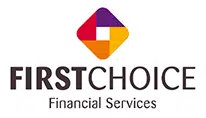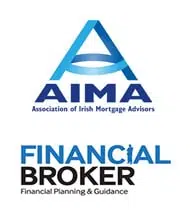PAYE Employees – What to do in advance of applying for a Mortgage
 It doesn’t matter how many mortgage applications a person might complete or go through over the course of their lives, each one is as daunting as the next. The pre-conceptions of what they entail these days are way worse than the reality of what is actually involved.
It doesn’t matter how many mortgage applications a person might complete or go through over the course of their lives, each one is as daunting as the next. The pre-conceptions of what they entail these days are way worse than the reality of what is actually involved.
What’s helps these days is the fact that most of the information required can be accessed from the click of a mouse. Since the banks & utility providers have moved toward E-statements, there is no more waiting around for the six months current account statements to arrive through the front door only to find there is a month missing and you have another 5 working days to wait. A person who wishes to apply can now acquire the documents they need very quickly in order to determine if they are ready to run the gauntlet and jump on the property ladder.
Documentation Checklist:
Applicants normally look at the document checklist I present them with like English paper 1 of the leaving cert, it’s not as bad as it looks. It’s a very straightforward part of the application if you break it down into three parts:
(1) Employment Information
- Salary certificate which we supply, this needs to be completed, stamped & signed off by your employer payroll department or their accountant. It’s not rocket science and can be completed in 5 minutes.
- A Copy of your most recent P60, again your employer will have this on file or you should have received the 2015 copy already.
- 3 Most recent payslips, whether you’re paid monthly or weekly it doesn’t matter. The last 3 payslips will do.
(2) Financial Information
- 6 Months bank statements for current accounts, Joint accounts & Savings accounts. People can access all of these online and print them out within minutes. If you are not registered for online banking you should start as it is an easier option. If there are any accounts in the credit unions they also now have online portals. Credit unions will also print out statements over the counter, unlike the banks.
- 12 Months loan account statements. Any loans you have will have to be shown with statements of 12 months. The good thing is they will only be approx 1 or 2 pages of transactions and can also be printed out online. The same applies to any mortgages you may already hold
- 6 Months credit card statements. Same as above, you can get these online.
(3) Personal Information
- Identification. Simply a copy of the passport & drivers licence. Pictures on the iPhone are not good quality so better off to use a proper copier/scanner.
- Utility bill. Anything with your address on it dated within two months from the present date. Phone bill, ESB bill, car tax/insurance or motor tax cert. If none of these can be provided the bank statements can be used & certified but the address must match that of the address you may rent at.
- Application form. This is the most detailed document as you will need to complete it in detail and paint a picture of your current situation. If there is any part of this a client may, be unsure of this is where your qualified mortgage advisor comes in and guides you through. It’s the same as any other form and everything in it is about YOU!
The above information is crucial as no bank will review an application without each one of the above, so the checklist is a vital cog in the process.
Bank Statements:
Bank statements are a very important part of the bank’s review process as they tell the story of the applicants saving & spending habits. When you produce the 6 months statements for the application it is probably best if they reflect the below points:
- Unpaids. If you have missed direct debits on your current account and have incurred referral fees as a result, it will set off alarm bells with the bank. Your account needs to be free of these for 6 months (if there happens to be one or two and you have a genuine reason like you forgot to transfer money from your savings the application could proceed but there must be a strong balance in the savings account and it must be a once off).
- Gambling debits. A number of small betting debits here and there won’t rock the boat too much but if there is a steady trend of money coming out each week/month amounting to a considerable amount the bank will decline an application no matter what the winnings may be, or losses for that matter!
- Savings DD’s or S/O’s. It really helps the applicants cause if there is a clear, set amount, being moved from the current account to the savings account by direct debit or standing order. It shows the applicant has repayment capacity and can live without a certain amount of money each month. Make sure you save an appropriate amount you can afford to live without. There is no point in saving €500 and withdrawing €300 by month end.
- Large lodgements & Withdrawals. Any transactions in & out of the bank accounts should be detailed on the statements if possible, so they can be made clear to the bank at application. If you have bought or sold a car, for example, circle it and signal out on the statement if possible.
- Salary Mandated. If your employer pays you by cheque it’s not the end of the world but it would be a lot easier if your salary was mandated to the account each week or month on the same day or around the same time. It’s the first thing the bank will look for on the statements.
- Rental payments. If you pay rent, you should be lodging it electronically to your landlord’s account. Paying by cash is very hard to prove to the bank as you are relying on receipts & atm transactions. This is something that should be addressed if possible.
Short Term Debt & Credit History:
An applicant’s previous or current loans, credit cards and credit history can be an integral part of the mortgage application. Below are our tips on how to manage and present these best with the mortgage application:
- Current loans. It is probably best to get any current loans down as low as possible before applying for a mortgage. They don’t help the application in terms of repayment capacity and they will lower the amount that an applicant can borrow.
- Credit cards. The credit card piece is much the same as the above point. If you’re paying off the holidays or the new widescreen TV it won’t affect the application too much but again it lowers the repayment capacity toward a monthly repayment so it is best to get the balance of these cleared or lowered as much as you can.
- Credit History. The dreaded credit history part. Each bank will look at this in a different way and nobody really knows what their own history look like until they get the report sent out by the ICB (Irish Credit Bureau). It costs €6.00 and can be ordered online @ ICB.ie . The bank will review this (once you give them the authority, which you will be required to do) while they review the application so it is better to look into this before you apply to avoid any potential disappointment down the line. A few late payments on a credit card will show up on this report so it really needs to be checked if there is any doubt.
 The hardest part of a mortgage application is getting started, once you have gotten over this hurdle the light starts to materialise at the end of the tunnel. At First Choice Financial Services DAC, we pride ourselves on our customer service and helping our customers understand the process of what they are trying to achieve. The mortgage is just one of the many services that our qualified financial advisors specialise in, please visit www.fcfs.ie to learn more.
The hardest part of a mortgage application is getting started, once you have gotten over this hurdle the light starts to materialise at the end of the tunnel. At First Choice Financial Services DAC, we pride ourselves on our customer service and helping our customers understand the process of what they are trying to achieve. The mortgage is just one of the many services that our qualified financial advisors specialise in, please visit www.fcfs.ie to learn more.
If you would like to discuss mortgages in more detail please call Hugh Mulcahy on 061-317260 or email [email protected] .
My next blog will assist those who are self-employed and are seeking a mortgage.
Hugh Mulcahy APA
Mortgage Advisor
First Choice Financial Services DAC is regulated by the Central Bank of Ireland.





